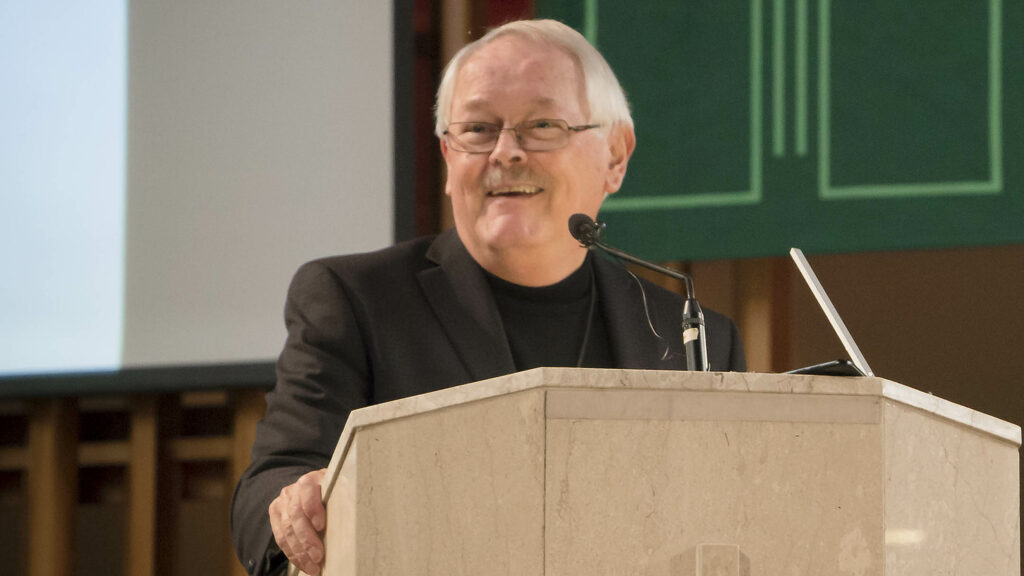Several weeks ago after giving a lecture at a religious conference, the first question from the audience was this one: How can you continue to stay in a church that played such a pivotal part in setting up and maintaining residential schools for the indigenous people of Canada? How can you stay in a church that did that?
The question is legitimate and important. Both in its history and in its present, the church has enough sin to legitimize the question. The list of sins done in the name of the church is long: the Inquisition, its support for slavery, its role in colonialism, its link to racism, its role in thwarting women’s rights, and its endless historical and present compromises with white supremacy, big money, and political power. Its critics are sometimes excessive and unbalanced, but, for the most part, the church is guilty as charged.
However, this guilt isn’t unique to the church. The same charges might be leveled against any of the countries in which we live. How can we stay in a country that has a history of racism, slavery, colonialism, genocide of some of its indigenous peoples, radical inequality between its rich and its poor, one that is callous to desperate refugees on its borders, and one within which millions of people hate each other? Isn’t it being rather selective morally to say that I am ashamed to be a Catholic (or a Christian) when the nations we live in share the same history and the same sins?
Still, since the church is supposed to be leaven for a society and not just a mirror of it, the question is valid. Why stay in the church? There are good apologetic answers on this, but, at the end of the day, for each of us, the answer has to be a personal one. Why do I stay in the church?
First, because the church is my mother tongue. It gave me the faith, taught me about God, gave me God’s word, taught me to pray, gave me the sacraments, showed me what virtue looks like, and put me in contact with some living saints. Moreover, despite all its shortcomings, it was for me authentic enough, altruistic enough, and pure enough to have the moral authority to ask me to entrust my soul to it, a trust I’ve not given any other communal entity. I’m very comfortable worshipping with other religions and sharing soul with non-believers, but in the church in which I was raised, I recognize home, my mother tongue.
Second, the church’s history is not univocal. I recognize its sins and openly acknowledge them, but that’s far from its full reality. The church is also the church of martyrs, of saints, of infinite generosity, and of millions of women and men with big, noble hearts who are my moral exemplars. I stand in the darkness of its sins; but I also stand in the light of its grace, of all the good things it has done in history.
Finally, and most important, I stay in the church because the church is all we’ve got! There’s no other place to go. I identify with the ambivalent feeling that rushed through Peter when, just after hearing Jesus say something which had everyone else walk away from him, Peter was asked, “do you want to walk away too?” and he (speaking for all the disciples) replied: “We’d like to, but we have no place else to go. Besides we recognize that, despite everything, you still have the words of everlasting life.”
In essence, Peter is saying, “Jesus, we don’t get you, and what we get we often don’t like. But we know we’re better off not getting it with you than going any place else. Dark moments notwithstanding, you’re all we’ve got!”
The church is all we’ve got! Where else can we go? Behind the expression, I am spiritual, but not religious (however sincerely uttered) lies either an invincible failure or a culpable reluctance to deal with the necessity of religious community, to deal with what Dorothy Day called “the asceticism of church life”. To say, I cannot or will not deal with an impure religious community is an escape, a self-serving exit, which at the end of the day is not very helpful, not least for the person saying it. Why? Because for compassion to be effective it needs to be collective, given the truth that what we dream alone remains a dream but what we dream with others can become a reality. I cannot see anything outside the church that can save this world.
There is no pure church anywhere for us to join, just as there is no pure country anywhere for us in which to live. This church, for all its checkered history and compromised present, is all we have. We need to own its faults since they are our faults. Its history is our history; its sin, our sin; and its family, our family – the only lasting family we’ve got.

